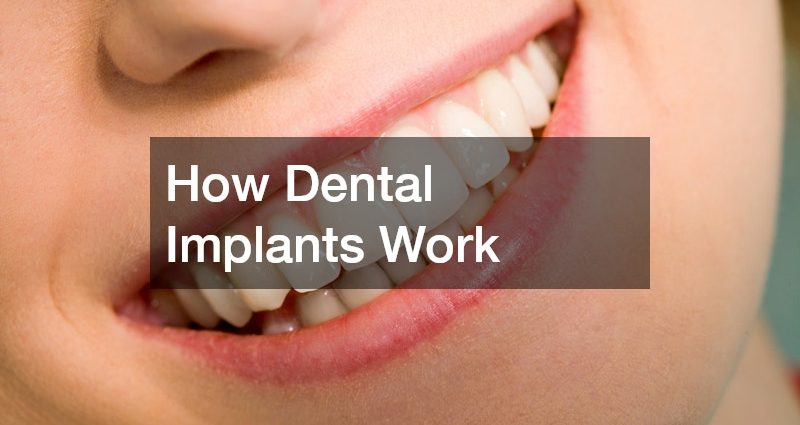
Introduction
Dental implants have transformed modern restorative dentistry, providing a durable, natural-looking solution for missing teeth. They restore both appearance and function, allowing patients to smile, speak, and eat with confidence. For residents considering dental crowns in Houston, TX, understanding how dental implants work—and how crowns fit into the process—is key to making an informed decision.
What Are Dental Implants?
Dental implants are artificial tooth roots made of biocompatible materials, typically titanium, that integrate with the jawbone to support replacement teeth. Their main purpose is to provide a stable foundation for crowns, bridges, or dentures, replicating the function of natural tooth roots.
Each implant consists of three main parts:
-
Implant post – the screw-like base that fuses with the bone.
-
Abutment – the connector attaching the post to the crown.
-
Dental crown – the visible tooth restoration that completes the process.
There are two primary types of dental implants: endosteal implants, which are placed directly into the jawbone, and subperiosteal implants, positioned under the gum but above the bone for patients with insufficient bone density.
Compared to removable dentures or bridges, implants offer superior stability, comfort, and longevity. For patients seeking dental crowns in Houston, TX, implants provide the most natural and lasting restoration method available.
How Are Dental Implants Placed?
The implant process typically involves several stages, carefully planned and executed for long-term success.
-
Consultation and Planning – The dentist evaluates oral health, bone structure, and medical history using digital imaging and 3D scans. This step ensures a customized treatment plan.
-
Surgical Placement – The titanium post is surgically placed into the jawbone under local anesthesia. Over the next few months, the implant fuses with the bone in a process called osseointegration.
-
Healing and Integration – As the implant stabilizes, temporary restorations may be used to maintain appearance and function.
-
Attaching the Crown – Once healing is complete, an abutment is secured to the implant, and a custom-made dental crown is placed. This crown is designed to match the surrounding teeth in color and shape.
-
Aftercare and Recovery – Patients in Houston, TX, receive detailed post-surgery care instructions, including gentle oral hygiene and follow-up appointments to ensure proper healing.
Are Dental Implants Right for You?
Candidacy for dental implants depends on several factors. Patients should have healthy gums, adequate bone density, and good overall health. Lifestyle habits such as smoking can affect healing and implant success.
In Houston, where residents often seek aesthetic and durable dental solutions, consulting a local specialist experienced with dental crowns and implants is crucial. These professionals can assess whether bone grafting or other preparatory treatments are needed before implant placement.
The long-term benefits—improved comfort, jawbone preservation, and natural appearance—make implants a worthwhile investment for many patients.
What Do Dental Implants Cost?
The cost of dental implants varies depending on factors like the number of teeth replaced, materials used, and any additional procedures required. In general, implants are more expensive than traditional dentures upfront, but their longevity makes them more cost-effective over time.
For patients exploring dental crowns in Houston, TX, it’s important to discuss financing and insurance coverage with the dental office. Many practices offer flexible payment plans to make implants more accessible. Investing in quality implant and crown work ensures lasting function and aesthetics.
Caring for Dental Implants
Proper care ensures the long-term success of dental implants. Daily brushing and flossing, combined with routine professional cleanings, prevent plaque buildup around the implant site. Patients should avoid chewing hard objects and report any discomfort or changes immediately.
In Houston, TX, dentists recommend regular checkups every six months to monitor implant stability and the condition of dental crowns. With consistent care, implants can last decades, maintaining both oral health and a confident smile.
Conclusion
Dental implants represent a modern, reliable solution for tooth replacement—offering strength, beauty, and function that closely mimic natural teeth. For those considering dental crowns in Houston, TX, implants provide the ideal foundation for long-term oral health and aesthetics. By understanding the process, evaluating candidacy, and maintaining proper care, patients can enjoy lasting, natural-looking results and the renewed confidence that comes with a restored smile.


